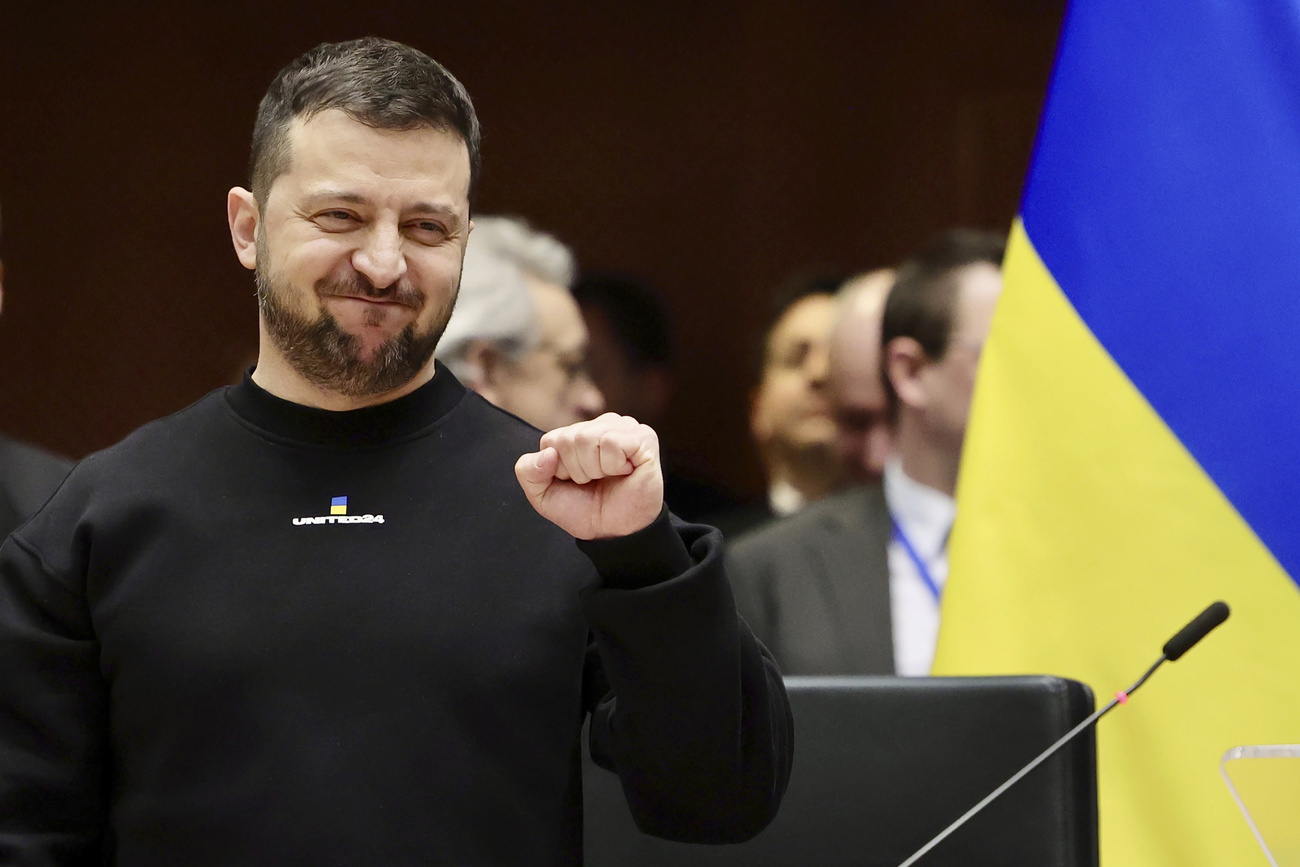
WEF to welcome Ukrainian President Zelensky

Ukrainian President Volodymyr Zelensky will travel to next week's World Economic Forum (WEF) in Davos, Switzerland, the event organisers have announced.
It will be Zelensky’s first visit to Switzerland since Russia’s attack on Ukraine in February 2022.
Zelensky will reportedly also be in Bern to meet some or all of the Federal Council.
Nothing has yet been finalised, Swiss public radio, RTS, reported on MondayExternal link. According to a senior Ukrainian source, discussions are still ongoing. For its part, the foreign ministry has neither confirmed nor denied this information and has made no comment on the subject.
+ WEF by the numbers: highlights and horrors
RTS said it was important to point out that a week before the WEF, rumours about the participants are fairly common. On Monday morning, other newspapers were predicting that Zelensky would be absent.
Since Russia’s invasion of Ukraine, Zelensky has adopted a cautious approach to travel – his trips are usually a surprise or are confirmed at the last minute for security reasons. It is therefore logical that there is no certainty at this stage, and it is entirely possible that this visit will take place earlier, later or not at all.
An important first
If this visit is confirmed, it will be an important first. The last time Zelensky came to Switzerland was for WEF in 2020, before the invasion. Since then, he has not returned, contenting himself with an appearance by videoconference.
+ Switzerland to host Ukraine peace talks in January
On a bilateral level, this visit would be a further symbol of the strong relationship between Switzerland and Ukraine, with three Federal Councillors having visited Ukraine since 2022. In addition, on Sunday Switzerland and Ukraine are jointly organising the fourth round in a series of multilateral discussions on the peace formula proposed by Kyiv.
If Zelensky does come, it will be mainly for the WEF. At a time when Ukraine is under military pressure and fears a decline in Western support, Davos would provide an excellent opportunity for its president to rally support among the world’s political and economic leaders.
This news story has been written and carefully fact-checked by an external editorial team. At SWI swissinfo.ch we select the most relevant news for an international audience and use automatic translation tools such as DeepL to translate it into English. Providing you with automatically translated news gives us the time to write more in-depth articles. You can find them here.
If you want to know more about how we work, have a look here, and if you have feedback on this news story please write to english@swissinfo.ch.

In compliance with the JTI standards
More: SWI swissinfo.ch certified by the Journalism Trust Initiative

























You can find an overview of ongoing debates with our journalists here . Please join us!
If you want to start a conversation about a topic raised in this article or want to report factual errors, email us at english@swissinfo.ch.